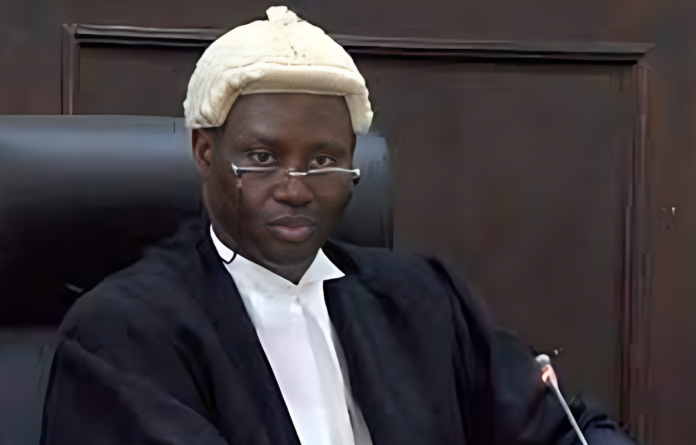By Kemeseng Sanneh (Kexx)
Abubakar Saidykhan stood in the courtroom, his hands clasped before him, listening intently as Justice Jaiteh prepared to deliver his judgment. The young man had spent the last three years and seven months behind bars, waiting for this moment—uncertain whether he would walk free or face more years in prison.
It all started in August 2021 in a particular village, where Saidykhan was accused of engaging in sexual intercourse with a minor between the ages of 16 and 18. Initially charged with rape—a crime that carried a potential life sentence—he denied the allegations. The prosecution pressed forward, calling five witnesses and presenting evidence. However, in the middle of the trial, they amended the charge to defilement, citing Section 5(1) of the Sexual Offences Act of 2016.
When the new charge was read to him, Saidykhan did not hesitate. He pleaded guilty, acknowledging the facts laid out by State Counsel F. Drammeh. His conviction was swift.
Now, as he stood in front of the judge awaiting his sentence, his defense lawyer, C. Ojoku, made a final plea for leniency. She painted a picture of a remorseful young man—one who had admitted his wrongdoing, who had no previous offenses, who had already lost precious years of his life in remand. She spoke of his ailing health, his elderly father, and his role as the family’s breadwinner.
Justice Jaiteh listened, weighing the arguments. Then he spoke.
“The convict has demonstrated a willingness to take responsibility for his actions,” the judge said. “He has expressed genuine remorse for his unlawful conduct in engaging in sexual intercourse with a minor—an offense that is unacceptable and condemned in this jurisdiction.”
Saidykhan lowered his head.
The judge acknowledged the gravity of the crime but also considered the time already served. Under Gambian law, defilement carried a maximum sentence of seven years. However, invoking Section 29 of the Criminal Code, Justice Jaiteh determined that the time spent in remand was sufficient.
“In light of these considerations, I hereby sentence Abubakar Saidykhan to a term of imprisonment equal to the time he has already served: three years and seven months,” the judge declared. “Given the time already spent in custody, I order that the convict be discharged from remand prison forthwith.”
A murmur spread through the courtroom. Saidykhan took a slow breath, his fate now sealed. After nearly four years behind bars, he was free.
As he stepped out of the courthouse into the afternoon sun, he blinked against the light, the weight of confinement lifting at last. What lay ahead was uncertain, but for the first time in years, he had a chance to start again.

















